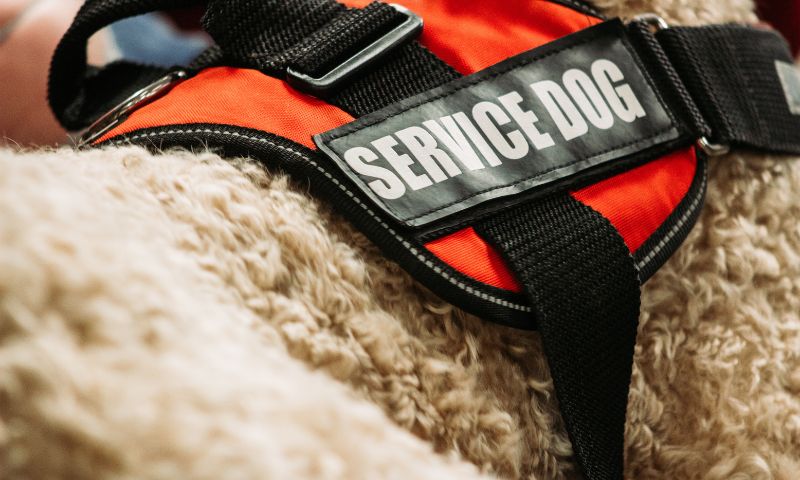Are You Allowed To Bring Your Service Dog To Work?

Service dogs are not just trusted companions; they are also highly trained to help their owners manage an illness or disability. If you have a service dog who provides invaluable assistance to you at home, you may be able to bring them to work with you as well.
There are a few factors that determine whether you are allowed to bring your service dog to work. Let’s take a closer look at what the Americans with Disabilities Act has to say, and how you can advocate for your health in the workplace.
The Americans With Disabilities Act
The Americans with Disabilities Act (ADA) classifies service dogs as a reasonable workplace accommodation. Your employer will not ask you if you need accommodations at work; it’s your responsibility to ask for them.
Under the ADA, only dogs can qualify as service animals—although there are certain provisions for miniature horses in specialized settings. In addition, emotional support animals do not count as service animals. Your dog must be specially trained to perform individualized tasks that help you with your disability.
Types of Service Dogs
Depending on the nature of your disability, your dog can be trained to perform different specialized tasks that help you manage your condition. Some examples include:
- Diabetic alert dogs who detect when their owners’ blood sugar is dangerously high or low.
- Guide dogs who assist their blind or low-vision owners as they navigate the world.
- Allergy detection dogs who sniff out the odors of allergens that can trigger an attack in their owners.
If you want to bring your service dog to work with you, make a request for a reasonable workplace accommodation with your employer. Per the ADA, they are allowed to ask clarifying questions about how the dog helps you perform basic daily tasks. However, you are not required to go into detail about the nature of your disability.
Undue Hardship
The ADA dictates that your employer must provide reasonable accommodations for qualified employees with disabilities as long as that accommodation does not cause undue hardship to the company. What does that mean? How can your service dog have a negative impact on the workplace?
Your boss can deny your accommodation request if they can prove that the dog’s presence would create a substantial burden on the office or trigger additional costs.
For example, you may have a coworker who has a severe allergy to dogs. In that case, your employer might be able to move the two of you further apart and install stronger air filters in the office. However, if accommodating your service dog is unduly expensive or labor-intensive, your employer may refuse your request. If you are unsure of the veracity of your boss’s claim of undue hardship, you can consult with an employment law attorney about potential next steps.
So, can you bring your service dog to work with you? The answer is: it depends. While service dogs are some of the most common reasonable workplace accommodations, there are a few situations in which a dog’s presence may cause undue hardship to the company. Request your accommodation anyway, and be prepared to advocate for yourself if your employer says no right away.
Would you like to receive similar articles by email?





